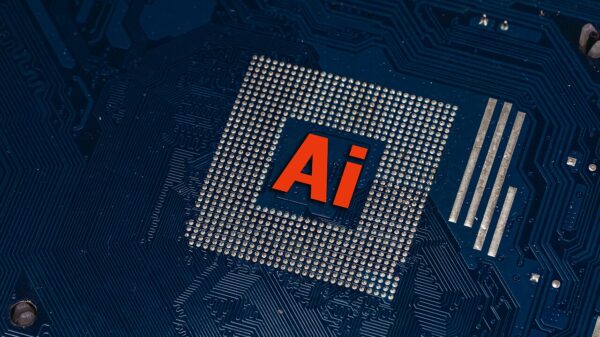Staff writer Annadonata Taccarelli explores the consequences of AI on the Graduate Job Market.
You are using AI to apply. AI is screening your CV. And you still can’t get an interview. Welcome to the graduate job market in 2025, where both sides of the hiring process have been automated and students are caught in the middle.
For King’s College London(KCL) students navigating this landscape, the anxiety is predominant. Despite being part of the prestigious Russell Group and ranked among the best universities in the world, many King’s students say that reputation alone no longer opens doors. Navigating an AI-driven job market has become a challenge in itself, where even top graduates struggle to stand out.
AI has permeated nearly every aspect of university life: it assists with academic essays, generates ideas, writes code, and now, crafts job applications. Yet this same technology is being deployed by employers to filter through thousands of applications. This has resulted in the creation of a paradox where algorithms speak to algorithms whilst graduates struggle to make their voices heard.
Several students have recounted that AI has transformed the baseline expectation of what an application should look like.
“There is so much more competition now because everyone has amazing CVs and cover letters thanks to AI. Not using it will only make me fall behind.” – a KCL student told Roar
Another student comments:
“I just ask ChatGPT to tailor my cover letter based on whatever company I’m applying to, and I barely even read the job description anymore. I mean, they’re probably using AI to screen it anyway, so why would I spend hours on something no human will read?” – A KCL Student
Students feel compelled to use automated tools not to gain an advantage, but to avoid being left behind. But when everyone’s application is AI-polished to perfection, individual merit becomes harder to distinguish, and the bar for entry rises ever higher.
According to Bright Network, 50% of graduates and undergraduates now use AI to help with their applications, up from 38% last year. Meanwhile, many of these applications are being screened by AI systems on the employer side. A vicious circle, to say the least.
An Employer’s Perspective
PwC recently announced it is cutting 200 entry-level positions in the U.K., with leadership citing AI and economic pressures as contributing factors. “AI is reshaping roles, global markets remain volatile, and graduate intakes everywhere are under pressure”, explained Marco Amitrano, head of PwC’s U.K. practice.
The numbers support these concerns. Recent research from Bloomberg indicates that AI could handle over half the tasks performed by market research analysts (53%) and sales representatives (67%), while their managerial counterparts see much lower potential automation rates (9% and 21%).
This suggests that routine tasks are more vulnerable to automation than work requiring judgment and human interaction.
The real challenge
Yet the issue extends beyond simple job displacement. The more fundamental problem is the erosion of the traditional career progression that has long defined professional development. The conventional pathway, where graduates start with routine tasks, learn the basics, and gradually take on more responsibility, is becoming less straightforward. If AI can handle the data entry, basic analysis, and administrative work, companies are less inclined to hire graduates for those roles. But if graduates never gain access to this foundational work, how can they develop the experience employers demand for higher-level positions?
“My older brother who graduated a few years ago started in a junior role doing spreadsheets and basic research, and yeah it was boring, but that’s how he learned the industry and now he has a higher-level job”. – A KCL Student
The result is a widening gap in professional development. Graduates need experience to be hired for higher-level roles, but the junior positions that would provide that experience are shrinking. How are we supposed to become the experienced professionals of tomorrow if we can’t access the entry-level work of today?
What the Best Employers Are Doing Differently
Not all companies are handling this transition the same way. The most forward-thinking organisations understand that integrating AI is not just about installing new software. Rather, reestablishing the relationship between employer and employee.
This is where the Employee Value Proposition (EVP) comes in: the implicit contract of mutual expectations, culture, and sense of belonging that defines why someone wants to work for a company. Some employers are actively rebuilding their EVP for the AI era, and these are their main areas of focus:
1. Studying the real impact of AI. Not just a focus on productivity metrics, but how it affects employee motivation and sense of belonging.
2. Communicating openly about how AI will be used, what its limitations are, and how it will benefit employees rather than just cut costs. Transparency matters, especially when people are worried about job security.
3. Bringing HR and Tech together. To recognise that only collaboration between those who lead people and those who lead innovation can create sustainable value.
4. Encouraging experimentation. Providing employees with the tools to explore AI, discover new ways of working, to familiarise themselves with the new technology.
What King’s College London students are doing about this
It is a critical time for graduates entering the workforce. To handle this, many students have claimed they are targeting roles that emphasise soft skills. These include creative problem-solving, communication, relationship-building and leadership, rather than positions that focus primarily on routine tasks. These human-centred capabilities are harder to automate and provide a more stable foundation for career growth.
Many students are also learning to work with AI effectively by understanding how to use these tools for augmentation and efficiency without becoming dependent on them. The goal is to leverage the technology strategically, not be replaced by it.
“I think the skill now is knowing how to use good prompts for AI and knowing what you need to do yourself. If I let AI do everything, I’m not actually learning anything”. – A KCL student
As AI integration increases, for students, the future of work feels uncertain.
















